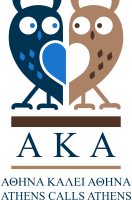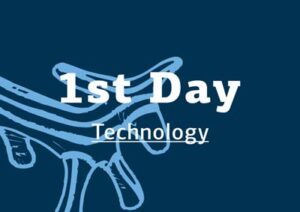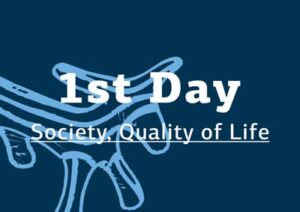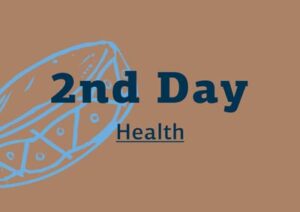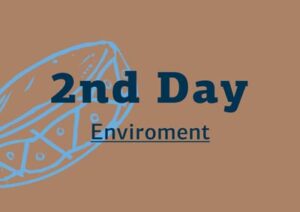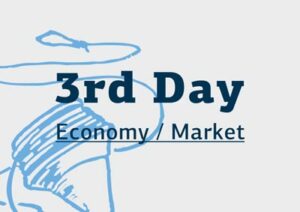
5th Session: ECONOMY
Ethics and Economics: Merging Individualism and Collectiveness.
Ethics is a system of moral principles that affect how people make decisions and lead their lives; it comes from the Greek word ‘ethos’ meaning custom, habit, character or disposition. On the other hand Economics is a social science that studies how people interact with things of value; in particular the production, distribution, and consumption of goods and services. These two relate because they both talk about values, goods, interaction between people; moreover economics as a science comes from moral philosophy. Adam Smith – the father of modern economics was a moral philosopher too.
Strangely though, people do believe that they are not related, and that economics are in some cases unethical.
Back in 1850s Thomas Carlyle coined the term dismal science for economics. The reason he did so, sounds today outrageous; he argued in favor of the re-introduction of slavery, but economics did not support his idea. The term stayed and is still used today for a whole different reason, but the denominator is the same: dislike for economics.
Apart from the historical roots in order to explain the aforementioned belief of people about economics and ethics, the blame falls on the neoclassical model of economics, that is taught in schools and universities around the world and describes an economic world where ethics is irrelevant since competition on the one hand and self-interest on the other can guarantee prosperity of the whole society. The neoclassical model has its flaws – it has predictive and explanatory power. Its assumptions are too strong and not too realistic. It supports perfect rationality, maximizing utility, that perfect information leads instantly to an equilibrium (i..e. the NCE world in a static world). O the other hand, it stresses the notion of competition and self interest, and how competition brings out the best of ourselves.
In order for competition to work, we basically need good institutions – this is the main idea of institutional economics. Prosperity and well-being depend on the quality of the market (Agora) and the equality of market depends on institutions necessary to guarantee that we have freedom.
The results of the market mechanism are by and large that the world is getting better not worse. Specifically, since 1993 the number of people living in extreme poverty has halved from 2 billion to 1 billion in 2013; since 1990 the number of children in the world who died from preventable diseases has halved from 13 million to 6,3 million in 2013. Since 1980 the percentage of girls in developing countries who completed elementary school has gone from 50% to 80% in 2013.
Concluding it was mentioned that Economyic and Ethics go hand in hand; they were never detached. Competition under a framework of functioning institutions promotes societal well-being by bringing out the best of ourselves and in free societies with good institutions, it is competition that brings people together and makes them cooperate. The world is not perfect and we need to do a lot to eradicate poverty but with good institutions in place we are on the right track.
The Role of the Cultural Background as a Unifying Element of Economic Development.
To what extent crises can affect culture. The psychology of societies alter during crises and the global financial crisis and the Covid-19 pandemic are examples to this statement. Under certain circumstances a crisis and its recovery can be a starting point for a new start to a new cycle of development. Yet crises and recovery situations do create traumas that accompany decision making In the future.
The cultural background has a long-term homocyclic effect. When we are in the economic prosperity phase there are a number of anti-growth aspects of social values that are linked to lack of openness, because everyone is scared to be open to other people and to other economies. However, in times of recession this social model gives rise to lines of defense linked to inward looking, while at the same time opposing its change. Thus , during the crisis in-group collectivism helps to reduce the negative effects of a crisis.
A health crisis at the extent of a pandemic changes the levels of certainty and confidence in the society which are key drivers of economic growth. Knowing from the past, the Black Death and the Hispanic Flu were points of social, political and economic transformation. The common element of all pandemic in the past is not only the fast spread of the virus but also of fear and uncertainty which can spread panic among the masses. This in turn can cause major change in the behavior of individuals so the effects of panic can become permanent due to social unrest and widespread mistrust for all others (other people, the government, other economies etc.). In the case of Covid-19 people embrace the appropriate hygiene rules and protective measures but at the same time they consider that their fellow citizens and governments do not correspond enough to the needs of the society.
In Greek society there are social-psychological stereotypes which have considerable social and economic reflections on the productive and social environment of the Greek economy. These lead to specific characteristics which were outlined in a recent survey that examined the case of Greece versus the other 27 countries of the EU. Specifically, an outcome for Greece is that there is lack of trust s is evident from a 25,3% positive answer to the question ‘most people can be trusted’ versus nearly 40% of the EU average and a 53,8% positive answer to the question ‘ most people are trying to take advantage of me’, versus a 30,6% of the EU average. The survey’s question ‘it is particularly important that the work I choose should enable the combination of work with care for the family’ had a 53,8% positive answer versus a 30,6% of the
EU average which shows strong in-group collectivism in Greece. Other outcomes for Greece include uncertainty avoidance, strong role of religion, performance orientation, non-acceptance of inequalities and loss aversion.
The citizens’ behavior toward economic policy and social issues was also discussed. Economic policy is dealing first with the efficiency of the functioning of the economy and secondly with income distribution. When an economic policy is implemented, citizens adopt to it either by implementing its effects or possibly by neutralizing it. The citizens view economic issues as of key importance on the effectiveness and the outcomes of economic policy. Policies that could change the behavior of a society are nudge policies and policies that could affect behaviors related to saving and investment, fertility and child-bearing issues and society’s expectations.
Impact of the Economic Crisis on Health Indicators in Greece and a Proposal for Primary Health Care Services Organizations.
It is widely accepted that the economic crisis and negative impact on Gross National Product (GDP) correlates with rising unemployment which also directly correlates negatively with the quality of life indicators; unemployment, as a direct result of the economic downturn is correlated with the negative evolution of health indicators. Economic crisis has an impact on the health of society as a whole.
As the aim of the study were presented a) the impact of the economic crisis on key health indicators and b) suggestions on the organization of primary health care services. Macroeconomic indicators of importance were specified the gross domestic product, the public health expenditure and unemployment; similarly, as health indicators were specified the self-reported need for medical care, the self-perceived health and healthy life years.
Comparing the Gross Domestic Product – market prices in Greece curve for the period 2009-2019 with the Health care Expenditure in Greece curve, we notice that they follow a similar pattern a more or less steady decline for the first 6 years and then a slow growth afterwards. Private out of pocket expenditure which is the main observation element, is high compared to other countries in EU. This more or less reflects to what extent Greeks needed to pay on their own for their health care during the recent economic crisis.
The Unemployment rate of active population is another curve that was presented and where it is noticed that it reaches its peak in 2013 (with over 1 million people unemployed); in the period 2013 to 2019 the unemployment rate is decreased but remains at relatively high levels. Another health indicator thoroughly analyzed was the Self-reported unmet need % of Medical examination or Treatment which steadily decrease since the start of the economic crisis in 2008 and for the rest 8 years until 2016 – with a steep rise since 2011. Since that time, a lot of people were indeed excluded form the health services which means their access is reduced.
As to the self-perception of people regarding their health as ‘Very Good’ or ‘Good % of employed persons we observe a decline in the case of ‘Very Good’ and a relatively stable pattern in the case of ‘Good’. The trend is justified as in the economic crisis period, the percentage of unemployed had risen and this category of people tends to believe that because of this reason the quality of their health is lowered.
The expected life years between 2007 and 2016 drop from 67 to 64 years for women and from 66 years to 63 years for men.
Overall conclusions from the above stemming from scientific correlations is that macro-economic indicators strongly affect health indicators. Rising unemployment appears to have a significant effect on health and quality of life.
Regarding the public health care system it can be said that:
1. It is hospital oriented
2. It lacks interface between primary and hospital care
3. Promotes primary health care as passive gate-keeping hospital services
4.perception of primary health care as non-active in protecting the population
5. Lack of national safety and quality health care standards
6. Lack of staff .
Athenian Economy Past & Future.
Classical philosophers such a s Xenophon, Plato and Aristotle were more interested in how people should behave which is what separates economic today and economics in Ancient Greece. Both Plato and Aristotle promoted a small self-sufficient economy and disapproved of greedy profit taking in reaction to the flourishing market economy in 4th century Athens. They were more concerned with justice than with market equilibrium. They found value in what is good rather than what is conducive to pleasure.
Ancient Greek society took precedence over the individual. Their conception was that the individual was dependent upon the society in which he was born and the community molded the individual into a ‘civilized’ human being.
Modern economics examine how people do behave and not how people should behave in economic activities including production, consumption and distribution, modern economics has tried to acquire the status of science by excluding the ethical aspect of human behavior, consequently it has led to believe that maximization of profit and utility were a good thing. Hausman and McPherson mention that because economists hypothesize that men constantly pursue selfish motives, people who study economics tend to become egoistic. On the other hand Xenophon, Plato and Aristotle discussed much about the broad sense of economics. For them, economics was a part of ethics.
One of Xenophon’s works is called «Oikonomikos» and in its first part has to do with theory of values; goods have use values and exchange values. A flute does not have any use value to a person who does not play the flute but because it can be exchanged for money at the market it has an exchange value. If the person misused the money he obtained at the market, however, it would become worthless. Thus, what is called wealth or property is more like the good rather than the material wealth as considered in modern economics.
Plato was one of Socrates students and was largely influenced by him; his works to be referenced is The Republic and Laws. In the discussions therein, Socrates interrogates his opponents in the method called elenghos (cross examination). He claims that ‘I do not know anything and the only thing I know is the fact that I do not know anything’. Socrates’ idea about education was not instilling knowledge into the minds of students but making them think for themselves by making questions such as ‘what is courage?’, ‘what is virtue’? etc. The fundamental characteristics of Plato’s ethics are that goodness is a function of the soul in terms of aim and character and it is not a function of the act in terms of its consequence and pleasure and goodness are distinct and man should seek only goodness.
Aristotle believed that the Excellence of character (Areti) refers to the state of soul that can be achieved after long period of practice and training. There are three aspects to character: desire, choice and action. Human nature that cannot be molded or bent or transformed to conform to some ideal of a perfect state.
Contemporary Greece, was severely hit during the recent economic crisis and based on the philosophies of Aristotle and Plato the most devastating hit was a large brain drain. Today, as its most great challenges are the still negative current account balance and the negative net international investment position, the slow digital transformation of the economy, and the projected demographic decline (due to ageing population and outward migration).
The Captivator Leader: Leading Creatively by Ethos, Pathos and Logos.
The concept of captivating leadership was explained. Such a leader is the one who builds up on foundation and trust with feeling of excitement and belonging, transfer the energy to their message in such a way that people take ownership of strategy or vision and are empowered to carry it out. Briefly it is about passion, commitment and empowerment.
In order to grasp the concept, try to remember those people in your life whether supervisor, friends, teacher, parents or any other person that you enchanted and charmed and ask the following question: what are your feelings and emotions during your interaction with them; how did you perceive them? What was their influence on your thinking values energy choices and behaviors? Did they inspire you to become more creative and may you think differently? If yes, then you are in accordance with the highly respected vocabularies and the way they define the term ‘captivate’.
Based on these ideas and taking into consideration the vast number of leader definitions that can be found in related literature, we can come up with the definition of captivator leader. It is a leader who by exercising positive and creative influence on the minds, shells and soul of the people affects them emotionally and intellectually and makes them wanting to behave and act rightly. Through this influential process people expand their possibilities or potential and give their best selves for extraordinary achievement and a better future. When people perform at the best of their abilities and can achieve extraordinary results, then changes are more feasible and acceptable and are greater chances that the life of both leaders and followers can become more meaningful and fulfilling.
Elaborating on the characteristics of this type of leader it was mentioned that captivator leaders strive for euphoria and happiness of their followers. The concept of captivation is more extending and inclusive than the concept of motivation, commitment, empowerment and engagement. They emerge across all hierarchical levels and all types of collective identities such as organizations, classrooms, families and societies. Their legacy matters because it is connected with people. The final test is whether this people that has stayed behind their conviction and will to carry upon. Captivator leaders excel their influence through their decisions, roles and behaviors but mainly through their captivating communication which is based on ethos, logos and pathos.
It is our strong belief that the concept of captivator leadership opens the road for more holistic and integrated understanding of the leadership process that better grasps the conditions modern organizations operate while at the same time appreciates the new types of employees.
The existing concept namely of motivation, commitment, empowerment and engagement share a lot of common ideas they are inter-dependent and have prove to be of particular usefulness for all types of organizations. However, according to our experience and research, all these concepts share two weaknesses. The first is that all concepts have been conceptualized as a means to bring organizational results. This conceptualization does not take into account the fact that people when they go to their work they don’t leave part of their selves at home.
Instead they bringing their thoughts, fears, desire etc.
The best type of captivation is the one based on inspiration and respect, as people are free to follow as they see you as something they want to invest in.
Inspiring Leadership through & beyond Covid-19: Lessons from History and Mythology.
Undoubtedly, following the Covid 19 pandemic, the world is in a global crisis; millions are infected, global travel is not happening, the world economy is in a free fall. Yet a lot of this is not the first time that it is happening – actually history is repeating itself.
Exactly 100 years ago the Spanish flu had also expanded across the Wworld and had killed billion; 700 years ago the so called Black Death had a quarter of Europe’s population. This makes us think about the Hindu/Buddhist philosophy – Karma and Nirvana which talks about the cyclic-ness and fluidness of time events. Even in this context, leadership evolves and revolves; yet certain fundamentals remain the same.
Leadership is a function of people. According to history and mythology there are various types of leaders. All of them inspiring, but some are appealing to some people while others to other. Quite like Iliad and Odyssey of ancient Greece, in India there are the Ancient Indian Epics of Ramayana and Mahabharata. There are differences between the protagonists of the ancient Greek epics i.e. there were Achilles and Odysseus that they were different types of leaders. Similarly in ancient Indian epics the hero of Ramayana is Lord Ram, a truthful warrior that pushes enemy in mortal combat and on the other side one of the main protagonists of Mahabharata is Lord Krishna who doesn’t fight physically, but through his brains. He strategizes and leads.
A bit closer in History, takigtaking a look at World War II, there are generals who are charismatic leaders who fought in the first line like Rommel, Paton and on the other hand there were leaders who strategized by making strategic decisions like Eisenhower. The question is therefore which type of the two is more important; the answer is that both types are important; if want to win a battle, you choose Paton, but if you want to win the war you choose Eisenhower.
Today there is modern technology, therefore there are modern reactions overall; the World isn’t changing – it has already changed. That means in effect that the concept of leadership has already changed; the ‘what’ in leadership is not important any more. It is the ‘how’ that has become more important. It is not that important where are you going and what you want to achieve. It is the ‘what’ you want to achieve; it is the journey, simply because nobody predict the future anymore. The contribution of leadership to this end is that it has become an enabler.
Among the facets of modern inspiration leadership the first and very important one is resilience. Resilient leadership can help stay the course and make sure that you can succeed. In order to do that you need decisivinessdecisiveness (the example of Arjuna’s dilemma was presented explaining that you have to make a decision, not to choose to do nothing). Then you need agility (the example Alexander the Great was mentioned for agility of his mind. There is s a saying ‘fly like a butterfly, sting like a bee’ – this is the only way you can be a resilient leader in the modern world.
The other facet is empathy; leaders need not only hear to their people, they need to listen to them. One has to listen and understand – perception is critical. Cultural intelligence is another; socially we are distant, but virtual we can get close. Leaders are about to manage this dichotomy between managing today and managing tomorrow. Diversity and equity are the same important.
Producing Innovative Products based on the Grape Seeds as a Winery By-Product.
20% of grape production is organic by-products with high content of polyphenols, tannins, and other organic substances. It is important to use winery by-products:
– Recent studies have shown that winery by-products may negatively affect the environment by presenting toxicity to crops and wetlands.
– Researchers focused on wastewater of wineries were considered to be responsible for the contamination of groundwater resources.
Elements about grape and marc: pulp composted mixed with other minerals can be used as fertilizer. Grape pomace fermented with special crops and produce high added value and purity substances such as polysaccharide or produce alcohol. Composted grape pomace substrate for plants and for cultivation of mushrooms or possibly alternative source of food. Fermented with different micro-organisms, extraction of tannins and polyphenols.
Elements about grape skin and grape seed; main by-products are used for: producing anther product (grape seed oil), producing alcohol, producing powder for food (bread, pasta) added to meat and seafood and for food coloring.
Useful numbers are that more than 77 million tons of grapes (vitis vinifera) were produced worldwide in 2018 and more than 3 million tons of seeds are left unexploited every year on a global scale. Seeds contain about 14-20% grape seed oil.
As a case study, research in the National and Kapodistrian University of Athens in collaboration with the Harokopio University of Athens, brought business idea of utilizing the grapes seed oil to produce some products. In phase 1(research), there was focus on grape’s seed oil properties, utilize it as ingredient of cosmetics, used seeds for skin exfoliation and utilized wine and grape syrup as nutritional ingredient. In phase 2 (business) a beauty line of products was produced for hair, face and body.
The grape seed oil was chosen as it has strong antioxidant properties due to high concentration of polyphenols, significantly reducing the levels of free radicals. It can apply for skin moisturizer, to provide skin firmness, to fight acme, to protect against UVA and as hair therapeutic.
The plant seeds are where it all begins; the seeds of every idea can become knowledge and reality initial element from which something is created or born. The seed symbolizes the genesis, new beginning and hope.
In this idea that today has become a business, the circular economy is as follows: the waste is re-used from the winery in order to produce new products with new life cycle, therefore value is created that did not exist previously in waste form, the product line is enriched and innovation is also added in the picture. The business’ product values are that they are environment friendly, have recyclable packaging , natural ingredients, sustainability, use of by-products and the circular economy itself.
Finally it was stressed that Waste is not Waste until we waste it. Following the rule of the four R’s, (reduce, reuse, recycle, repeat) we can turn waste to treasures, and promote circular economy and sustainability, so to make new products and create new jobs.
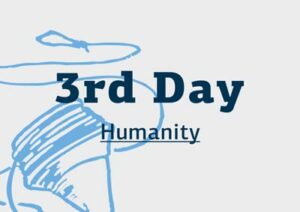
6th Session: HUMANITY
Reflections for the 21st Century Beyond the Anthropocentric view.
The speech is presented in 5 steps for clarity purposes:
First step is the question – the problem! As we enter the globalised world the era of technology and biotechnology, there is an agony about the ordinary life and an adequate way of how praxis itself will reaffirm.
The new thought we have to integrate in the 21 century would have to stand upon all traditions that realise and speak of inadequacy so to speak – aporia for the Greeks – a kind of problem to seek reality in a wholistic way.
For us, people of the west, we have to overcome two major things. The thought for us comes in two patterns: one is the window – we see as if something is there out of a window and the other one is a way of thinking through mirroring – projections. We have to integrate them, overcome them and fill the gap made in the beginning of the modern era.
A second point: The demand for a holistic thinking was set by Plato when the recitation of the allegory of the cave comes to an end, a question as well as a drama on the direct viewing of the Good – Agathon.
Agathon that is beyond essence, what we seek, is not a value or a virtue. It s not exactly what we seek. Every way of thinking has its own values and we have to integrate them.
A third point has to do with the modern shifting about truth. A shifting from nature and God to the Cartesian eye- the eye of the beholder. In short, although the idea of a foundation is strong, the ultimate foundation is a problematic idea; it does not exist. We cannot orientate our thought through the one unique foundation as the 20th century did.
Plato speaks about the idea of a foundation in Timaeus where he speaks about Hora a place where Demiurge invites the whole cosmic material.
The fourth point, if we are now to orient ourselves to a new way of thinking, Cosmos, is the new foundation, both material and spiritual. It is important to consider the inadequacy of a romantic turning to nature. Nature is coming back in every day life.
Cosmos is not material or spiritual, it is not in our control, volition or desire.
We can not speak of ecology as something neutral. It is like the air. You have no control over the air, yet you have to do something with it.
This Cosmos is a Cosmos that has no center or periphery. Has no privileged starting point to hang upon and this is what is explained in the fifth and last point of the speech. What is the way to appreciate this Cosmos.
We are also aware of idea; not only as a great principle for unification or fragmentation or multiplicity as it was before, but an idea as an open and systematic productive total thinking, that runs through the domains of art, science, religion etc, concerning a poetical becoming.
Is there any new humanism in the 21st Century?
Hunesco ’s reflection on a new humanism has been adapted in 2010 based on the hypothesis that globalization has accelerated the mengling of cultures and the rapid development of new media technologies. The term new Humanism has emerged from the current operation of new digital and quantum technology.
Some universal principles of enlightenment related to the evolution of human species i.e.. freedom of thought and expression, democratic governance, equality etc., in our epoch of digital and in ten years from now quantum technology are openly under the Damoklian sword of theorists pertinent to eugenics and meta-humanism.
To some extent Michel Foukau’s theory has influenced several theorists of the met-humanistic perspective. Besides in today’s post-pandemic societal, political, economic and cultural transferal, there are concerns and problematic issues inevitably in the current discourse of meta-humnism. These issues are accelerated during the pandemic and intensified because of the politics of neo-liberal globalisation. Individuals participate in globalization directly using on line platform to learn, find work and build personal networks.
More than 900 million people have international connections in social media and 400 million take part in e-commerce.
The covid 19 has accelerated the digital transformation of the global economy. More than ever before in the history of mankind, we experience the operation of meta-human systems. These newly emerged socio-technical meta-systems contribute to join human learning and systemic capabilities; in view of this they change many facets about what we think about social life, about public and private organizations, about work environments.
For some scholars the brain appears the first collateral victim of the increasingly close relationship between humans and machines. Human memory now finds itself competing with digital memory.
The pandemic and the post pandemic periods accelerate the digital zones. In ten years from now we are going to experience the quantum technology. Capitalizing on those zones, meta-humanists believe that we should not shrink society as a result of methods of education and/or cultural concepts associated with the principles of classical enlightenment. Instead we must integrate new technologies in a way that we allow human species to go beyond what some consider as human. In essence the cell of meta-humanistic thought is the formation through technology of a common world consciousness, which they call a new enlightenment. This however, can be a nightmare reminding inter-allia pages of Orwellian society. These theories and actions are far removed from classical humanism as they reject the anthropocentric and social approach while degrading the human species into one of many natural or artificial species.
Concluding two critical questions were posed: What literary or other forms of letters and arts can be employed as cultural means towards an emotional and cognitive resistance to the ongoing artificial and instrumental eco-system of heta-humanism? How literary and other forms of literature and art can re-energize the mental and ontological synthesis of humanity?
From One to Many Athens, towards the Re-discovery of Human Consciousness.
How Athens and Attica were formed and transformed in the remote past. According to Plato Athens existed 10.000 years before his era.
Theseus the first king was the settler the Ktetor and the eponymous hero responsible for the creation for the first synikismos when people moved from the valleys to the area close to the Acropolis hill. It is to this collected satellite settlements of a valley that Athens due its name in plural form: Athens and not Athen.
Besides, we must not forget other ancient Athenian versions of the foundation of the city – all of them extravagant because mythological. A great one is Athena fighting Poseidon gaining power over the city which is to take its divine name.
Other very old memories mixed and fused with myths and local legends talk about the older inhabitants, the Pelasgians that were thrown away by the Ionian tribes that flooded Attica at some time between the 2nd millennium B.C.
Athens history is especially known for its Periclean times – the Golden Age of philosophy and democracy, arts and sciences.
As a unique phenomenon in history of civilization Athens in the 3rd and 4th century of the Hellenic world, was referring to its citizens – ‘polites’ and not to its material entity. It is for this reason that we have ‘Dimos Athineon’ (municipality of Athens) which means a dimos – a municipality of the Athenians and not a Dimos of Athens. The citizens go first; the city is its people and not its buildings. The polis (the city) is already understood as an idea as something less material and less spiritual. It is the idea of a harmonic co-existence of its citizens, the electors, the thinkers and the statesmen of the city. Buildings of the time were to be known only as symbols of the collective work of the citizens; ekfrasis (expression) of this majestic productivity of the democracy.
In our case of symbolic Athens, the Topos (the city itself as expressed above) and the Hronos (the time) understood as a permanently changing reality, extend beyond the historical time and space. City not a place for its people is a main idea of Athens in the antiquity, in the middle age, the early modern times where protagonists are the humans, the ‘atomon’ (individual). This is this greatest success of Athens: to put in the center of the universe each single human being, eternalize it methodically, extensively and scientifically. It is the first time ever in the history of Planet Earth that the individual becomes the center of observation and analysis.
Products of democratic Athens are all this.
Concepts like harmony, esthetic, perfection ,perfect balance, the metron, democracy, golden number, atomon ,liberty, live into this revival of spiritual Athens, after along time of hibernation.
In nowadays it is just to remember Athens, not only the one that gave the gifts of this well being but its multiple reflections over the political existence of the individual.
Migration Flows to Europe and their inclusion in National Education Systems of Member States: Challenges and Perspectives.
Since 2016 images of immigrants crossing Mediterranean sea is very common.
Refugee crisis started from the mid 90s but it had its peak in 2016. With 1,5 million refuges form the border of Asia and Africa to European countries.
The instability caused by the war in Syria and other sources of instability were among the factors that caused people to evacuate their countries to escape the war.
What can we expect in the near future about the subject of migration? The New Pact on Migration and Asylum risks shifting responsibility for hosting refugees from the geographically disadvantaged to the economically disadvantage. Although it does not replace the Dublin Regulation, the pact reduces pressure on frontline states such as Greece and Italy which serve as gates for migration.
Referring to recent migration patterns and with regard to migration towards and from Europe, it was reported that the first decade of the 21st century has seen large waves of migration from both within the EU and from outside it. The inflow in that decade appears to have peaked in 2007. In 2008, 3,8 million people migrated to and between the EU-27 member states.
There were changes in the foreign population in Europe since the mid-1990s. Compared with 1999 only Belgium , Germany and Sweden showed reduction. In Southern Europe, much of the rise in Greece, Italy, Portugal and Spain can be attributed to regularization programs which had the effect of converting unrecorded migrant stocks to recorded ones. Evidence for this statistics comes from recent Migration Policy Debates reports of OECD.
The number of international migrants worldwide has grown faster than the world’s population. Due to this faster growth rate, the share of migrants in the total population has increased from 2,8% in 2000 to 3,4% in 2017. The pace of growth in the migrant population varies significantly across regions.
Much of the discussion about the scale of migration to and within Europe separates out asylum seekers from ‘normal’ (predominantly labor & family reunion) migration flows. Many asylum seekers are not attempting to migrate for economic and/or family reasons, while the statistical distinction is no longer clear.
The second part of the presentation evolved around the refugee crisis in the context of education.
Amidst the time period between 2011 and 2016, education is in the context of Greek fiscal consolidation. Since 2015 the refugee crisis is the worst Europe has faced since World War II and education is in that context.
Building a Knowledge Based Economy by Supporting the Excellent Academic and Research Ecosystem.
In the future world actors will be replaced by humanoids. Their director and manipulator is an artificial intelligence computer called the Maestro which directs the performances by constantly interacting between the humanoid actors and the viewers . The theater as we knew it is dead.
The new art form that abolished the term theater or drama is called the Auto-drama or auto-theater which means the automatic theater operating with specific programming of artificial intelligence. Technically humanoid actors are perfect but they lack something very important, the feeling and the artistic breathe and emption of creation element that only imperfect human actors had in the past.
This is part of a novel written by the American author Walter M. Miller who places this in the beginning of the 21st century. The protagonist is a former famous actor that belonged to the Darfsteller actors. Darfsteller is a German word meaning the emotional actor the self directed actor who are able to completely identify themselves with the role they are playing.
The hero of this novel Ryan Thorner is an explosion not only for an artistic passion but also from a humanity and existential justification. He shares the theatrical stage with humanoids in a play that once he was triumphed. Until his majestic departure from the stage the spectator watches the anguished course of the human actor trying to complete his last performance. One last performance of a human being of his world, a last performance in his world as he knew it trying to complete his existence and his mission thus interepretinginterpreting his existence in a world that artificial intelligence has replaced him.
There are many works that influenced Miller’s novel. Among them is the landmark work of Herny Miller ‘1984’. In this novel Orwell one of the most famous dystopias of the last century the author presents the future controlled by the dominant figure of the Big Brother. The party controlling the meanings figures of the In a dystopian novel, by Jack Williamson, the known ‘With Folded Hands’ robots having as main command in their programming to protect humans, establish a benevolent and ruthless dictatorship where happiness is imposed by the punishment of lobotomy.
During the first months of 2020 theaters world-wide were closed in an attempt to control the pandemic. Theaters suddenly ceased to exist as a form of art. After the initial freeze, cinematic or television hybrids started appearing in our computer screens. Performance tried to keep or simulate something out of the magical atmosphere of the theatric world.
The theater represents the public discourse. It is the mirror of society. The theatrical stage gives the spectator the opportunity to turn his or her gaze to any contributor or object, or part of the space is wishing at any time.On the contrary cinematographic camera restricts the viewers dictatorily to see only what the director wishes from the point of view he chooses.
\The theater explores the invisible, our inner world. Theater is a method of producing emotions which a re experienced by the spectators.
Building a Knowledge Based Economy by Supporting the Excellent Academic and Research Ecosystem.
Hellenic Foundation for Research and Innovation is a public foundation established in October 2016 and operating under private law. It is being supervised by the Deputy Minister of Development and Investments, responsible for research and technology. What is does is actually providing funds through open and competitive calls following a peer review scientific evaluation. It is privileged to finance the whole spectrum of Greek academics from PhD students and post doctoral fellows to faculty members and researchers. Financial support is also provided for acquisition of high cost research equipment.
A bottom-up approach was described where the HFRI community of the country will shape its destiny. The foundation supports excellent science with no thematic or geographic exclusions and it has similar operation with the European Research Council (ERC). In a bottom-up approach the scientific community draws policies to support its own.
The foundation’s budget is at the level of 300 million Euro (120 million from the Greek Public investment program and 180 million from the European Investment Bank).
There are many foundation in the world of similar nature that need to have funding for curiosity driven research. Examples are the European Research Council, the National Science Foundation, the Royal Society, the National Research Foundation are some of those existing abroad.
A brief presentation of what has been achieved so far is to provide funding with consistency and continuity. Statistics of this effort are briefly as follows:
Two calls for PhD Scholarships where 951 proposals were funded in a total of 3441 proposals received, at a total budget of €23,5 million in a period of time of 2,5 years.
Two calls for Doctoral Research 297 proposals were funded in a total of 2833 proposals received, at a total budget of €50,5 million.
Two calls for Doctoral Research where 4500 proposal have been received, at a total budget of €50,5 million.
In total HFRI has received and continuous to receive for evaluation more than 12.368 proposals, it has funded at least 1,541 PhD students, Post Docs, Faculty and Researchers.
In its endeavor to ensure consistency and continuity it has rolled out so far €179.330.000.
Its work program is issued annually and serves as a roadmap that the Foundation will continue to support the excellent academic ecosystem of Greece.
